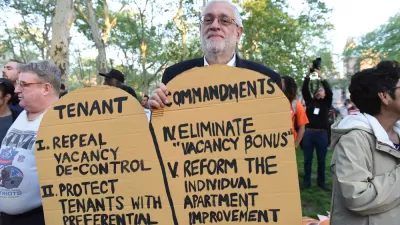The elimination of extreme poverty - daily income below $1.25 - has long been a goal of the U.N., the World Bank, and development experts. The world's mass urbanization is a leading reason that quixotic goal may actually be achievable by 2030.
"The first Millennium Development Goal — to halve the proportion of the world population living in dire poverty by 2015 — was met five years early, as the rate fell to an estimated 21 percent in 2010, from 43 percent in 1990," writes Annie Lowrey. "Some economists had feared that the recession would arrest or even reverse the trend, given how interconnected the global economy is, but the improvement continued, unabated."
"For much of the improvement, the world can thank one country: China, which alone accounts for about half of the decline in the extreme poverty rate worldwide. It has also driven significant gains across the region. In the early 1980s, East Asia had the highest extreme-poverty rate in the world, with more than three in four people living on less than $1.25 a day. By 2010, just one in eight were. But other middle-income countries, like Brazil, Nigeria and India, have experienced significant growth, too — in no small part because tens of millions of the very poor have moved from rural areas to cities, where they become richer, healthier and more productive for their economies."
FULL STORY: Is It Crazy to Think We Can Eradicate Poverty?

Planetizen Federal Action Tracker
A weekly monitor of how Trump’s orders and actions are impacting planners and planning in America.

Restaurant Patios Were a Pandemic Win — Why Were They so Hard to Keep?
Social distancing requirements and changes in travel patterns prompted cities to pilot new uses for street and sidewalk space. Then it got complicated.

Maui's Vacation Rental Debate Turns Ugly
Verbal attacks, misinformation campaigns and fistfights plague a high-stakes debate to convert thousands of vacation rentals into long-term housing.

In California Battle of Housing vs. Environment, Housing Just Won
A new state law significantly limits the power of CEQA, an environmental review law that served as a powerful tool for blocking new development.

Boulder Eliminates Parking Minimums Citywide
Officials estimate the cost of building a single underground parking space at up to $100,000.

Orange County, Florida Adopts Largest US “Sprawl Repair” Code
The ‘Orange Code’ seeks to rectify decades of sprawl-inducing, car-oriented development.
Urban Design for Planners 1: Software Tools
This six-course series explores essential urban design concepts using open source software and equips planners with the tools they need to participate fully in the urban design process.
Planning for Universal Design
Learn the tools for implementing Universal Design in planning regulations.
Heyer Gruel & Associates PA
JM Goldson LLC
Custer County Colorado
City of Camden Redevelopment Agency
City of Astoria
Transportation Research & Education Center (TREC) at Portland State University
Camden Redevelopment Agency
City of Claremont
Municipality of Princeton (NJ)




























